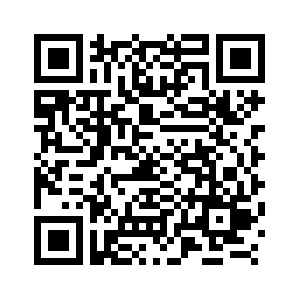LUSAKA, Sept. 20 (Xinhua) -- In an effort to promote inclusive development, Zambian organizations working to improve the welfare of people with disabilities are advocating for the use of appropriate terms when talking about them.
The Zambia Federation of Disabled Organizations (ZAFOD), the Adventist Development and Relief Agency (ADRA), and the Christian Blind Mission (CBM) have joined hands to campaign for the inclusion of persons with disabilities at all levels of development in various communities in Zambia.
The organizations have since embarked on training workshops and community sensitization programs that, among other things, seek to highlight the importance of using appropriate terminology when referring to individuals with disabilities.
"The programs aim to foster a more inclusive society by promoting language and communication that respects and includes people with disabilities," explained ZAFOD Programs and Advocacy Manager Misheck Katongo Mutamba.
Mutamba added that the ZAFOD firmly believes that the words people choose to use when referring to persons with disabilities can have a powerful impact on how individuals with disabilities are perceived, treated, and included within a given society.
"Terms such as 'the crippled' or 'the mentally disabled' should not be encouraged because they are discriminatory. More appropriate terms would be 'person with a mental condition.' By advocating for the use of respectful terms, we aim to break down barriers and promote positive change throughout Zambia," he said.
Kalumba Matapo, 49, a disability rights activist, emphasized the importance of using person-first language that emphasizes the individual rather than their disability.
"Calling me by my name means that I am a person first; I am not defined solely by my disability, which is blindness. It helps to break the stigma and promotes inclusivity," Matapo stressed.
He further pointed out that when people use derogatory terms to describe individuals with disabilities, it perpetuates stereotypes and reinforces negative beliefs.
ADRA Program Senior Programs Officer Caroline Mwewa observed that using the right terminology in conversations about persons with disabilities is a critically important step toward creating a more inclusive society.
Mwewa further revealed that it is for this reason that ZAFOD, ADRA, and CBM have been actively engaging with community leaders, policymakers, and organizations to raise awareness about the impact of language on disability inclusion.
The organizations have also reached out to media outlets, encouraging them to adopt more inclusive language when reporting on disability-related matters.
"The use of appropriate terminology helps shift the narrative around disabilities and ensures total participation of persons with disabilities in the development of their communities," said Malilwe Malilwe, CBM programs officer overseeing the organization's Community-Based Inclusive Development initiative. ■



